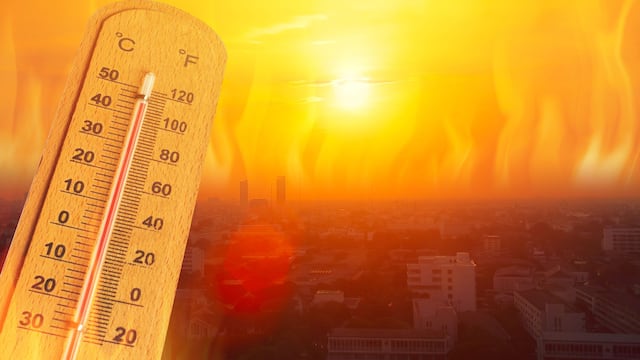The NWS is encouraging people to remind themselves of the precautions that must be taken when temperatures reach dangerously warm levels

Heat wave in the U.S.: This is what extreme heat does to our bodies and what we can do to protect ourselves

It’s summer and major heat waves are sweeping across the United States, prompting many to prepare for the scorching days ahead. Across the Southeast, temperatures have hit triple digits, with relief out of sight for millions as the weekend approaches.
The US government classes extreme heat as “a period of high heat and humidity with temperatures above 90 degrees for at least two to three days.” Extreme heat is responsible for the highest number of deaths among all weather-related hazards. One of the greatest risks for parents and animal owners is forgetting their young one or pet in the car when temperatures rise to dangerous levels.
A dangerous heat wave is set to impact over 20 million people across the Southeast & TN Valley this weekend, with highs in the 90s-100s and heat indices surpassing 110°F. Relief expected by early Aug. Stay hydrated, limit outdoor activities, and check on vulnerable individuals. pic.twitter.com/ovNjsg7Xvz
— NWS Weather Prediction Center (@NWSWPC) July 26, 2025
People most at risk from this heat are older adults, children, the sick, and the overweight.
What does the heat do to our bodies?
Our bodies need to be kept at 98.6 degrees Fahrenheit. With temperatures exceeding this, our bodies need to work harder to maintain this temperature. Multiple illnesses are associated with extreme heat.
Good Monday morning! The heat and humidity are about to crank up around the tri-state region for the next several days. We’re going into a short heat wave, but it will be quite hot nonetheless. Today’s high, 95° so get ready to take it easy for the next few days. 🥵🥵🥵 pic.twitter.com/jrrwGpwGVm
— Mike Woods (@mikewoodsfox5) July 28, 2025
The most common is heat stroke, which can be measured by a temperature reading greater than 98.6º F. Symptoms include dizziness and a lack of sweat despite red skin. It is recommended that the person be taken to the hospital. Two other illnesses are heat cramps and heat exhaustion.
What you can do to keep cool
Related stories
The ready.gov website has a list of recommendations that you can apply to keep cool this season:
- Never leave people or pets in a closed car on a warm day.
- If air conditioning is not available in your home go to a cooling center.
- Take cool showers or baths.
- Wear loose, lightweight, light-colored clothing.
- Use your oven less to help reduce the temperature in your home.
- If you’re outside, find shade. Wear a hat wide enough to protect your face.
- Drink plenty of fluids to stay hydrated.
- Avoid high-energy activities or work outdoors, during midday heat, if possible.
- Check on family members, seniors and neighbors.
- Watch for heat cramps, heat exhaustion and heat stroke.
- Consider pet safety. If they are outside, make sure they have plenty of cool water and access to comfortable shade. Asphalt and dark pavement can be very hot to your pet’s feet.
Though fans provide some relief, they are not recommended for cooling since there are no actual changes in the temperature if no cool air is being introduced, which gives your body the false impression that you are cooling down. If you do not have access to air conditioning in your house, it is worth contacting your county to see if there are any programs to have one paid for. Especially for younger and older people, the heat can be a real threat to one’s health, and all precautions that can be taken to avoid heat-related illness should be.


Complete your personal details to comment